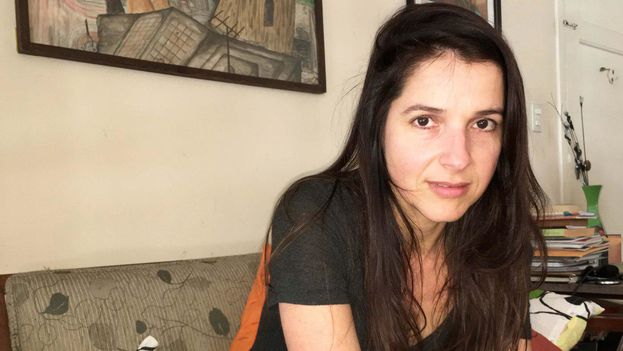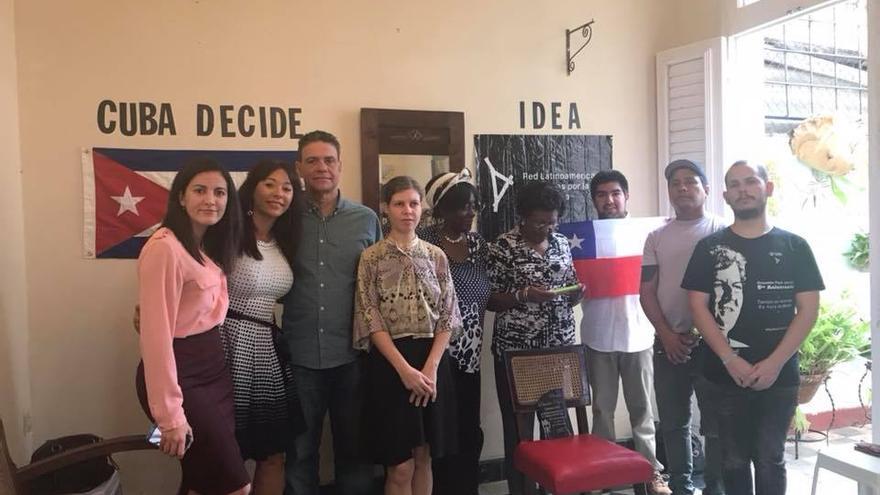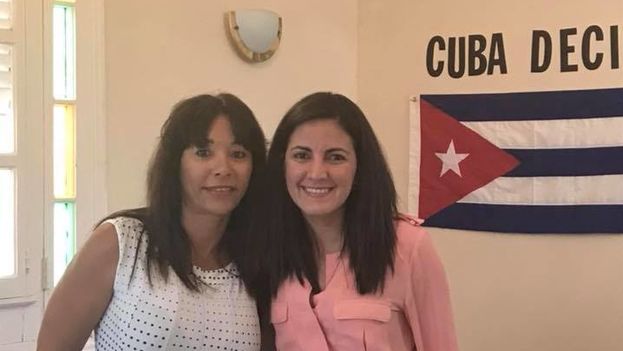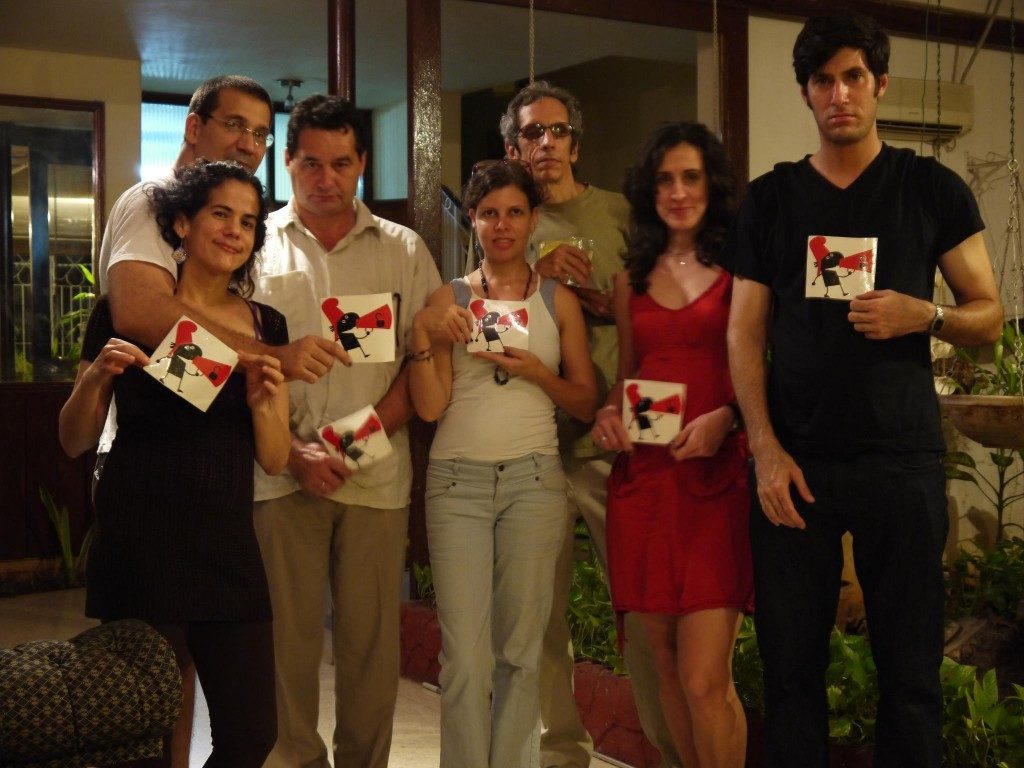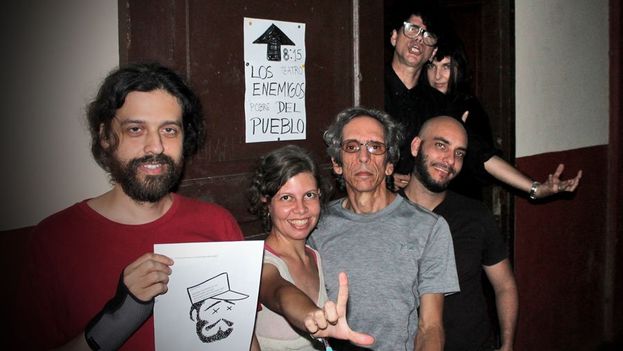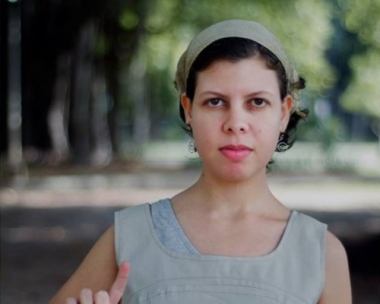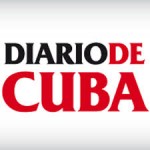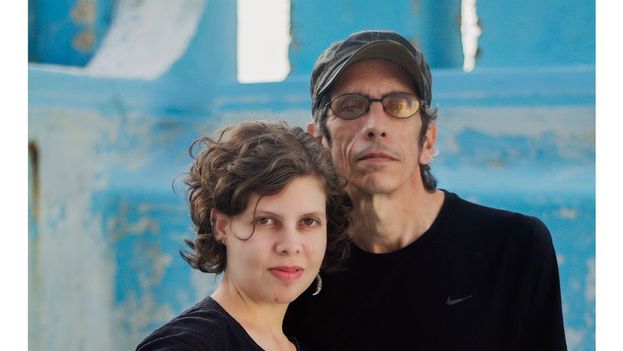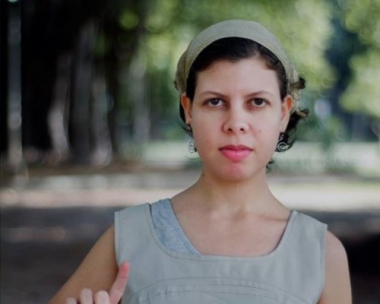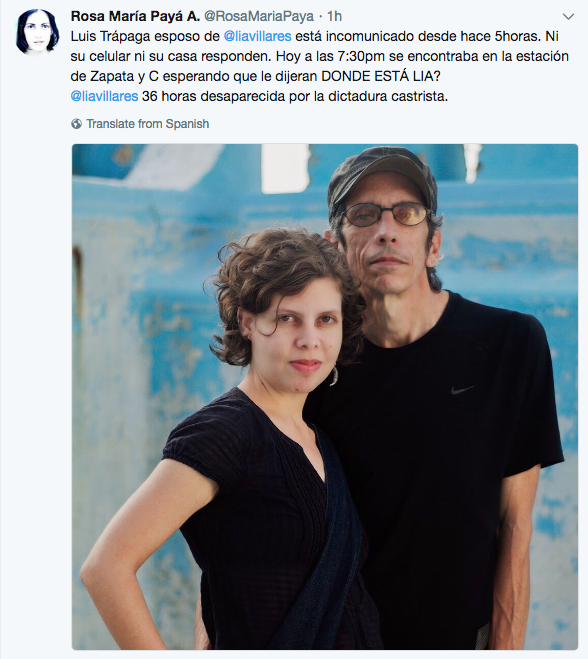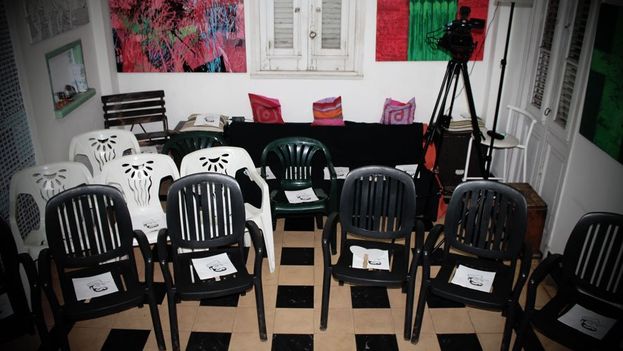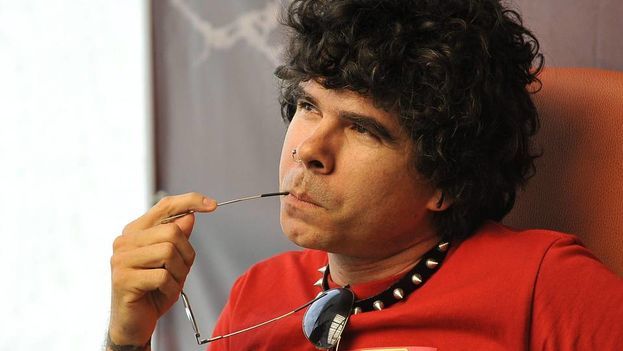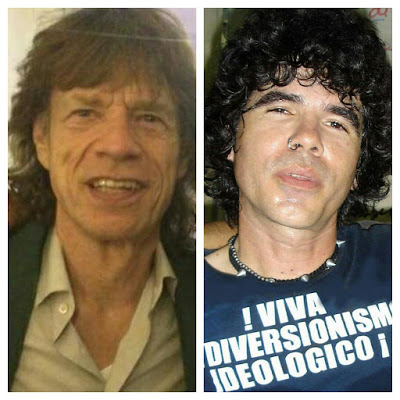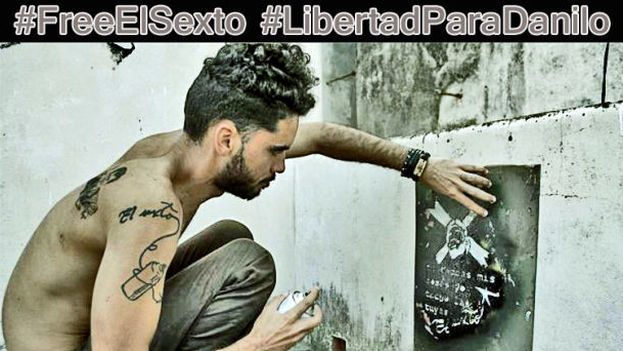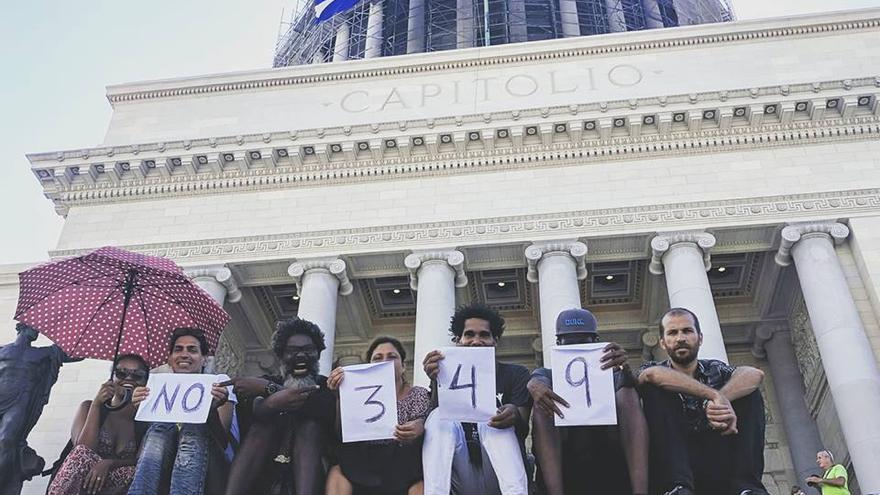
![]() 14ymedio, Luz Escobar, Havana | 17 September 2018 — The group of independent artists who since July have been carrying out a campaign against Decree 349 reports that “since the triumph of the Revolution, in 1959, there has existed a state of exception when it comes to the freedom of artistic creation and expression” in Cuba and that a considerable number of “creators and cultural projects have flourished from their own will and creative capacity, but then been taken down by the powers and the official institutions that rule national life.”
14ymedio, Luz Escobar, Havana | 17 September 2018 — The group of independent artists who since July have been carrying out a campaign against Decree 349 reports that “since the triumph of the Revolution, in 1959, there has existed a state of exception when it comes to the freedom of artistic creation and expression” in Cuba and that a considerable number of “creators and cultural projects have flourished from their own will and creative capacity, but then been taken down by the powers and the official institutions that rule national life.”
The text is part of the San Isidro Manifesto, presented this past Wednesday by the group as one more of their actions against the rule that regulates artistic presentations in private spaces and against which they have been mobilizing since July. The document, which is circulating on media, is signed by Luis Manuel Otero Alcántara, Yanelys Núñez, Amaury Pacheco, Iris Ruiz, Michel Matos, Hamlet Lavastida, Soandry del Río, Verónica Vega, Lía Villares, Yasser Castellanos, and Tania Brugera, among others. continue reading
Its launch took place at the venue of the Museum of Politically Uncomfortable Art (MAPI), in the San Isidro neighborhood of Old Havana, and musicians, poets, writers, audiovisual directors, producters, and plastics artists joined the act.
Yanelys Núñez read the text, which invites “any individual who feels like part of this phenomenon that today we call ‘the independent'” to participate in the campaign aimed at the repeal of Decree 349, and urges a dialogue that will allow the review of cultural policies that the State institutions are attempting to impose.
Later, the attendees made a pilgrimage to the Malecon to ask the patron of Cuba, the Virgin of Charity of El Cobre, for the annulment of the law.
The manifesto mantains that the law “legitimizes the use of judicial action to punish the free creation and determination” that belongs to them as artists and individuals and says that it “stimulates corruption” through the creation of the figure of the supervisor-inspector “taking into account that inspectors are one of the most corrupt sectors of the regulatory apparatus of the State.”
On July 10 the Council of Ministers approved Decree 349, focused on “the violations regarding cultural policy and over the provision of artistic services” which will enter into full force in December.
The artists who defend the repeal of the law believe that this “is destined not only to control and intimidate artists and creators from various branches of the national culture, but also in the private business sector, to impede a natural and organic relationship inside the different spheres of Cuban society.” In addition, they believe that it “threatens with legal warnings, fines, and seizures of equipment or property used as a platform for the creation and dissemination of independent works.”
The decree grants to the “supervisor-inspector,” they emphasize, the authority to suspend immediately any performance or show that he understands to violate the law, having the ability to go to the extreme of canceling the self-employment license to practice work.
“We understand exactly that any nation in the world must regulate its internal activities, receive taxes if those become lucrative, just as they must safeguard internal order and peace,” point out the artists. However, in their view it is “inadmissable to accept the existence of a confusion of laws” that only aims to control the artistic sector and “punish it for its independent expression and action.”
The group of artists believes that the “only logical aim” this law appears to have is to maintain “the ideological primacy in a highly centralized state.”
Some of the artists complain that the official press has tried to distort the intention and origin of the campaign against Decree 349 and clarify that they are only asking institutions to listen to them and that they are not calling for “either neither anarchy nor confrontation.”
However, they maintain that these laws and rules are impossible to comply with because “they don’t adjust to the national reality at the present time” and because they are “abusive, disproportionate, and they violate international norms and agreements.” For this they direct their proclamation “to all men and women of good will” and invite their support.
“We are determined to come together as a group to begin a collection of sociocultural actions like this as calls for international attention to halt the imposition of a complex of laws that insults all Cubans,” they state.
On more than one occasion this group has suffered political repression for trying to carry out public acts to support and defend their campaign against the decree. On August 11 various artists who wanted to participate in a concert at the MAPI venue suffered the repression of police who showed up at the place along with officials from State Security to stop the action. On that day, which ended with the detention of several of the artists, neighbors from the San Isidro neighborhood went out to the street to condemn the conduct of those in uniform.
Translated by: Sheilagh Carey
___________________________
The 14ymedio team is committed to serious journalism that reflects the reality of deep Cuba. Thank you for joining us on this long road. We invite you to continue supporting us, but this time by becoming a member of 14ymedio. Together we can continue to transform journalism in Cuba.

